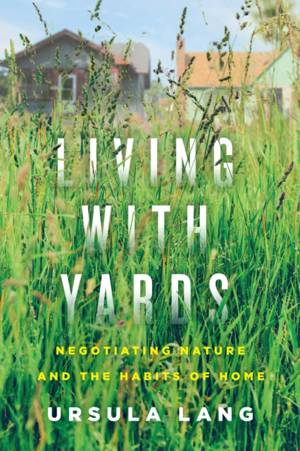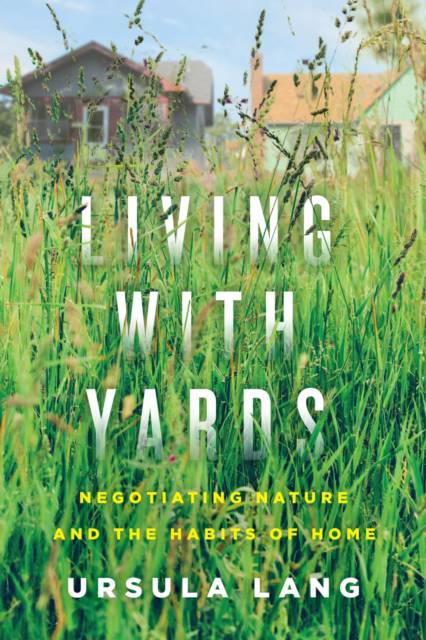
- Afhalen na 1 uur in een winkel met voorraad
- Gratis thuislevering in België vanaf € 30
- Ruim aanbod met 7 miljoen producten
- Afhalen na 1 uur in een winkel met voorraad
- Gratis thuislevering in België vanaf € 30
- Ruim aanbod met 7 miljoen producten
Zoeken
€ 186,45
+ 372 punten
Uitvoering
Omschrijving
Yards are not quite wild, yet rarely tamed. Across diverse residential landscapes in North America and beyond, yards are regulated by the state and markets, defined by imaginary property lines on maps, and sometimes central to privilege and exclusion.As urban life is reimagined for greater sustainability, resilience, and adaptation, Living with Yards invites readers to more fully engage with the possibilities of how we can coexist with our urban habitats. Ursula Lang uses the yard as a faceted lens through which to examine the multiple and contradictory ways people live in urban environments, and how perceptions of those environments are shaped by contemporary environmental policies and projects. Visual ethnography and narrative illustrate how inhabitants of Minneapolis live with their yards as sites of social and environmental care while also negotiating difference. Throughout, Lang's subjects engage in diverse and creative everyday practices of cultivation and property ownership, often quite distinct from the environmental policies and projects in place.The process of reimagining cities as more sustainable and equitable must include knowledge of how people live within urban spaces. By conducting in-depth visits to more than forty yards and sharing her results, Lang provokes us to think about what else these realms of daily life might become. Living with Yards chronicles the interplay between the yard as habitat and our inhabitation of it, exploring the changes and innovations a better understanding of urban living might spark.
Specificaties
Betrokkenen
- Auteur(s):
- Uitgeverij:
Inhoud
- Aantal bladzijden:
- 216
- Taal:
- Engels
Eigenschappen
- Productcode (EAN):
- 9780228008569
- Verschijningsdatum:
- 15/01/2022
- Uitvoering:
- Hardcover
- Formaat:
- Genaaid
- Afmetingen:
- 152 mm x 229 mm

Alleen bij Standaard Boekhandel
+ 372 punten op je klantenkaart van Standaard Boekhandel
Beoordelingen
We publiceren alleen reviews die voldoen aan de voorwaarden voor reviews. Bekijk onze voorwaarden voor reviews.











